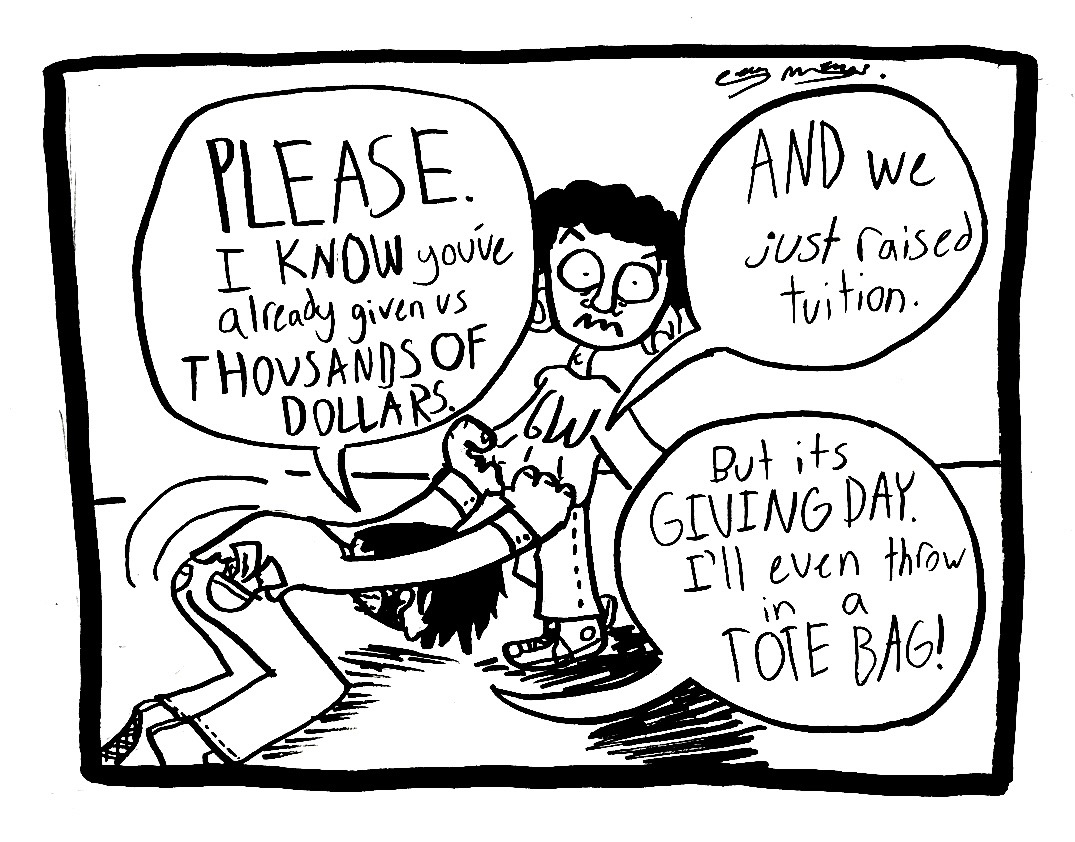Santos Perez is a janitor at 2033 K St. If you have ever been to the School of Engineering and Applied Science or the Counseling Center, you stood on the carpet he vacuumed, rode in elevators he shined and used the toilet he cleaned. You probably never have met or seen Perez, though, as he works a four-hour night shift for $6.15 an hour with no health benefits after a full-time job stripping floors and cleaning carpets during the day at another building for only $7 an hour with no benefits. Perez is only 22 years old, an immigrant originally from El Salvador, working relentlessly just to get by.
Yet, working at 2033 K St., a building in which GW occupies much of the second, third and fourth floors, is unfairly rough for Perez and his nine co-workers, one of them being his father.
“I just want the same benefits other people get. If I am hurt on the job, I want protection. If I am sick and can’t come to work, then I don’t want to face the threat of being fired,” Perez said.
After a few months working at 2033 K, Perez had had enough and began organizing with his co-workers to form a union with the Service Employees International Union Local 82, the same union that represents GW’s housekeeping staff and 4,000 janitors in the District’s commercial office sector.
Currently, a majority of 2033 K workers are on strike against Building Maintenance Corporation (BMC), a company that operates nine buildings in D.C., two of which have workers currently on strike.
“When we began organizing, the company tried to bribe us with a small raise, but when we asked the vice president of the company to offer us basic benefits, (he) told us that they can’t afford the benefits a union gives,” Perez said, after returning from a rally, still proudly holding a “Justice for Janitors” sign.
Yet, Perez and thousands of other janitors in the District are unconvinced. Janitors in many other cities, where rent is much lower than in D.C., clean buildings owned by the same firms that operate in D.C. and are provided with full-time jobs that include health benefits and higher wages.
For example, in Philadelphia workers earn $11.96 an hour with benefits. In San Francisco janitors won a contract of $15.65 per hour with benefits and in Pittsburgh janitors earn $14.38 per hour with benefits. Yet, in D.C. more than 90 percent of the workforce have no health benefits, and few earn more than $8 an hour.
As a result of the over-demanding work for poor compensation, Jenny Mendoza joined the strike at 2033 K St. Mendoza, a Bolivian immigrant, cleans the floors and bathrooms occupied by our alumni development department.
“The hardest time at work is during inspections because in addition to normal duties we have to dust everywhere, clean the kitchen and vacuum four extra floors,” Mendoza said. “It is eight hours of work crammed into a four-hour shift.”
BMC simply refuses to recognize the union that Perez and Mendoza have formed with their co-workers and will not sit with SEIU Local 82 to participate in citywide negotiations to address worker issues and wages for janitors.
Perez was filled with ideas when asked what students can do to help.
“Students can ask their administrators to call BMC President Robert Nolting Jr. and demand that they take part in the citywide negotiations,” he said.
Over the next week, as we cram for exams and get ready for summer, if you happen to visit 2033 K, you may notice the floor is less shiny. These workers decided they did not want to work so hard for so little anymore. Next week, every day, they will be out on the picket line, trying to have their union recognized, chanting “Si se puede,” which means “yes, we can.”
They would love it if you joined them.
-The writer, a graduate student in the School of Political Management, is a Hatchet columnist.






